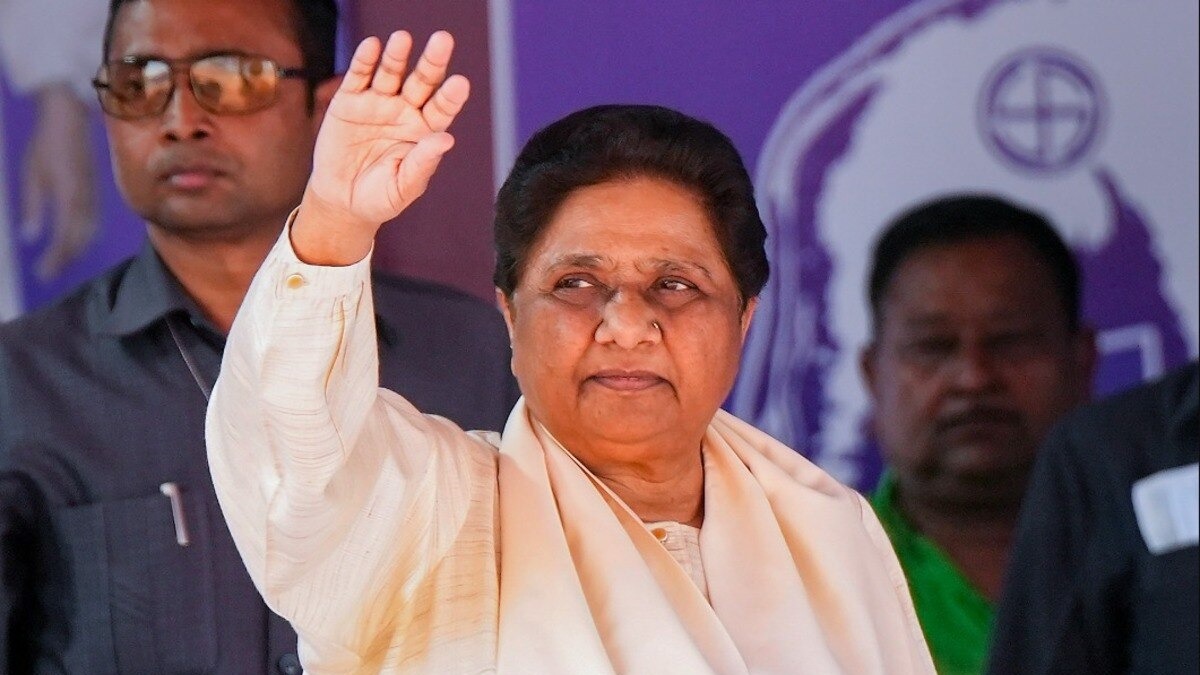The 2024 election results have delivered a staggering blow to the BJP in Uttar Pradesh, where the party has suffered significant losses, despite having the majority of winning expectations. Fingers are being pointed—can the vote dispersal of 'Sister' Mayawati’s BSP and the subsequent shift towards the India Alliance be to blame? Or has the BSP harmed both sides, sustaining the most significant damage itself?
Advantage BJP
The dispersion of the BSP votes had the most significant benefit for the India Alliance. Notably, out of the 33 seats the BJP won, there are 16 where the BSP's vote count is higher than the margin by which the BJP triumphed over the India Alliance, leading political analysts to suggest that the BSP’s votes contributed to those victories. Had the BSP's votes been fewer, the BJP would have dropped below 20 in UP.
BSP Harms India Block in 23 Seats
However, there are also 23 seats where BSP gathered good support which affected the India Alliance. These are constituencies where BSP has always been strong. In areas where BSP managed to stem the dispersal of its vote bank, the BJP emerged victorious over the India Alliance, albeit by a slim margin.
It is believed that BSP failed to retain its traditional vote bank in many constituencies, resulting in a significant portion shifting towards the India Alliance. Seats lost to the Alliance, where BSP's vote dispersal was high, have analysts questioning if strategic election maneuverings by parties influenced these outcomes.
What Happened in 2019?
In 2019, on the 42 seats BSP did not contest, the Dalit community largely voted for BJP. However, this time around, with BSP's participation, those votes caused damage to BJP's tally. For instance, in Muzaffarnagar, BSP candidate Dara Singh Prajapati's entry benefitted Harendra Malik against Sanjeev Balyan of BJP. Prajapati secured 143,000 votes, leading to Balyan's defeat by a margin of 24,000 votes.
In Budaun, last election's majority Dalit votes went to BJP due to BSP's absence. However, this time BSP's candidate Muslim Khan secured over 97,000 votes, defeating BJP's Durbijay Singh Shakya by about 35,000 votes. These examples are indicative of 22 constituities where BJP lost seats it had gained in previous elections due to BSP's non-participation.
In comparison with the 2022 elections, BSP saw a decrease of nearly three percent in vote share, which predominantly shifted toward the India Alliance. Preserving vote share is the current challenge for BSP, shown by underwhelming results even in strongholds like Nagina, Mayawati's political cradle.
Benefit of Nominating a Muslim Candidate Yet Unseen
Despite Mayawati's belief that her core supporters remain loyal, nominating a Muslim candidate seems to have been disadvantageous as the Muslim community did not vote for BSP in expected numbers. Following the election results, Mayawati's statements indicate a future cautious approach to political involvement for Muslim candidates.
For the 2024 Lok Sabha elections, Mayawati decided to contest independently. BSP garnered 9.39% of the votes yet failed to secure a seat. Some Congress leaders were attempting to bring BSP into the India Alliance right until the end, but Mayawati says alliances only result in losses for BSP—demonstrated by the party's inability to win any seats in UP during these elections.
Seats where BSP votes exceeded the winning margins show telltale signs across regions, from Bijnor to Mirzapur. These 16 constituencies are a testament to the scattered yet impactful presence of BSP's voter support.
BSP's Vote Share Drops by 10.38%
It seems Mayawati's voter base is slipping away gradually in UP. While BSP’s Jatav core supporters are losing ground, non-Jatav vote banks are also slipping significantly. The victory of Azad Samaj Party (Kanshi Ram) candidate Chandrashekhar Azad by 151,473 votes from Nagina constituency is an example of this demographic shift.
The combination of SP and BSP in the 2019 Lok Sabha elections had claimed 15 seats, with BSP winning ten of those. This partnership has not been as fruitful since the 2014 Lok Sabha elections, where BSP could not secure a single seat, signaling a worrying trend of declining electoral strength. The last assembly elections only accentuated this decline.
Mayawati’s challenge now is to regain connectivity with the ifted and diversifying voter base that once stood as the bedrock of her party’s success. Analysts observe BSP's deteriorating vote percentage as a red flag for its continued relevance in UP's electoral politics.




